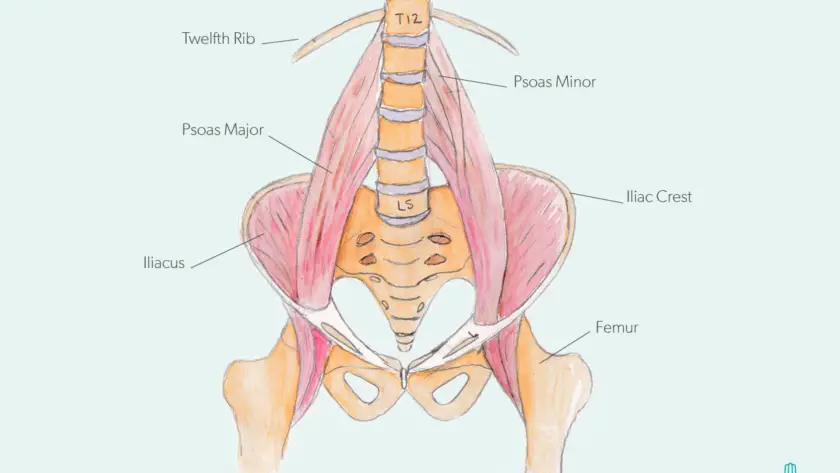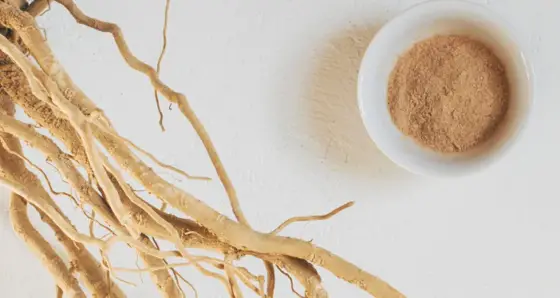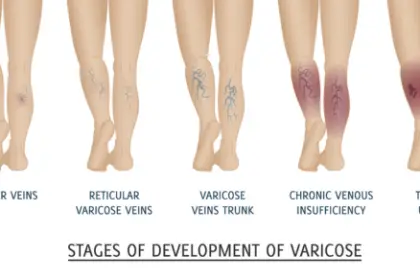The body and mind share an intimate connection – what affects one affects the other. This relationship is perfectly embodied in the psoas muscle, also known as the “muscle of the soul.” Nestled deep within the core, the psoas originates along the lumbar spine, crosses the pelvis, and connects to the inner thigh. This powerful muscle plays a crucial role in stabilizing the spine, enabling us to stand upright, and driving movement.
However, due to its location and connection to the nervous system, the psoas also acts as a barometer of our emotional state. When we feel threatened or experience stress, the psoas tends to grip and shorten as part of the fight-or-flight response. This psoas tension can translate into back pain, disrupted digestion, poor posture, and trouble walking. A chronically tight psoas from emotional stress or trauma is linked to higher levels of anxiety and fear.
On the other hand, a psoas that becomes inhibited or weak from disuse or prolonged sitting can also lead to trouble. Without the muscular support of a toned psoas, our core is unstable, posture suffers, and we may unconsciously contract other muscles to compensate. This often manifests as a slumped stance, low back pain, and an overall feeling of malaise or unease.
The good news is that we can take action to maintain a happy and balanced psoas. Certain yoga poses, breathwork, and mindfulness practices can release psoas tension when it grips. Targeted stretches and exercises can also strengthen the muscle if it has become underactive. By learning to care for this vital muscle group, we can enhance our physical health and emotional regulation.
In this article, we will explore the fascinating link between the psoas, our emotions, and states of anxiety and fear. You will learn about the triggers that cause psoas dysfunction, signs to watch out for, and techniques to release a tense psoas and keep it supple and strong. With a balanced psoas muscle, you can stand tall both physically and mentally. Read on to care for your “muscle of the soul.”
The Mind-Body Connection of the Psoas
The psoas is the only muscle that connects the upper body to the lower body, bridging the gap between the trunk and the legs. This key positioning near the spine and nervous system means the psoas plays a crucial role in our stress responses and emotional regulation.
When the brain senses danger or threat, whether real or imagined, it signals the hypothalamus to activate the fight-or-flight response. As part of this cascade, the hypothalamus stimulates the psoas muscle to contract. This pulls the hips into flexion, allowing us to run or spring into action.
Chronic activation of the fight-or-flight response from ongoing stress leaves the psoas in a constant state of tension. As Dr. Liz Koch, leading expert on the psoas, states, “It’s as if our router settings have been altered and our body-mind thinks we need to protect ourselves, be hyper-vigilant, expect the worst, or hide from a threat that doesn’t actually exist.”
Signs of Psoas Dysfunction
Tightness and shortening of the psoas from stress can lead to:
- Low back pain or spondylolisthesis (spine slippage)
- Stiffness or restricted range of motion in the hips
- Knee pain or hyperextension
- Poor posture like forward head position or sway back
- Trouble walking smoothly
- Runners’ knee or other tracking issues
- Lower crossed syndrome
- Digestive complaints like constipation
Alternatively, a weak and inhibited psoas from disuse can cause:
- Lower back pain
- Slumped or exaggerated lumbar curve
- Hip flexor stiffness
- Knee pain or instability
- Forward pelvic tilt
- Low energy and fatigue
Whether it is tight and overworked or underactive and weak, psoas dysfunction almost always leads to heightened anxiety and unease through its direct tie to our nervous system.
Triggers of Psoas Dysfunction
There are several common triggers that can cause the psoas to become tense or weak:
- Chronic stress – From work, relationships, finances, trauma, etc.
- Prolonged sitting – The psoas is shortened in a seated position for too long.
- Injury – Direct trauma to the muscle or nearby spine jolts the psoas.
- Tight hamstrings/hip flexors – Makes the psoas overwork to compensate.
- Poor posture – Slumping or hunching over stresses the psoas.
- High heel wear – Shortens the psoas and alters alignment.
- Pregnancy – The extra weight and postural shifts affect the psoas.
Signs of an Unhappy Psoas
Watch for these signs that your psoas is not functioning optimally:
- Lower back pain, especially after long periods of sitting
- A hypersensitive startle reflex
- Anxiety, fear, and feeling unsafe or on edge
- Trouble sitting up straight
- Stiffness going from sit to stand
- Difficulty lifting your leg when walking
- Heart racing or palpitations when stressed
Releasing Psoas Tension
Try these techniques to let go of excess psoas tightness:
- Psoas stretches like lunges and active release
- Diaphragmatic belly breathing
- Restorative yoga poses (savasana, child’s pose)
- Massage and myofascial release
- Warm baths
- Meditation and mindfulness to lower stress
Strengthening the Psoas
Build an active and supportive psoas with:
- Core strengthening like planks and leg raises
- Bridge poses and hip thrusts in yoga
- Walking, swimming, and gentle cardio
- Balancing exercises
- Psoas muscle release work before core training
Adding The Natural Herb Ashwagandha Can Greatly Reduce Stress Anxiety Without The Harmful Side Effects Of Prescription Drugs.
Click Here To Check Out Micro Ingredients Ashwagandha Root Powder To Add To Your Drinks And Smoothies.
By keeping your psoas flexible, strong, and free of excess tension, you can improve your posture, core stability, athletic performance and mental wellbeing. Be mindful of psoas triggers and utilize relaxing and strengthening techniques to care for this vital muscle. With a happy psoas comes a happy mind-body union.
The psoas, as the bridge between our spine and legs, plays a critical role in posture, movement, and our stress responses. When overstimulated, this core muscle can shorten and trigger the body’s fear reflexes. With chronic stress or trauma, psoas tension can linger, making us feel constantly on guard and anxious. On the flip side, a weak psoas from disuse can also heighten unease and instability.
Thankfully, there are many tools available to keep the psoas happy. Awareness of common triggers like sitting, poor posture, tight hamstrings and injury can clue us into potential psoas dysfunction. Keeping an eye out for physical and emotional signs of psoas imbalance enables us to address issues promptly. Practices like yoga, massage, breathwork and mindfulness calm the psoas when tense and provide motion to strengthen it when weak.
By learning to care for the “muscle of the soul”, we can foster both physical and mental wellbeing. Releasing a stressed psoas and keeping it supple brings ease to both body and mind. Try the techniques in this article and feel the difference in your posture, nerves and outlook as your psoas finds its balance. The peace we cultivate in this powerful muscle ripples throughout our whole system, allowing us to stand tall through it all.






